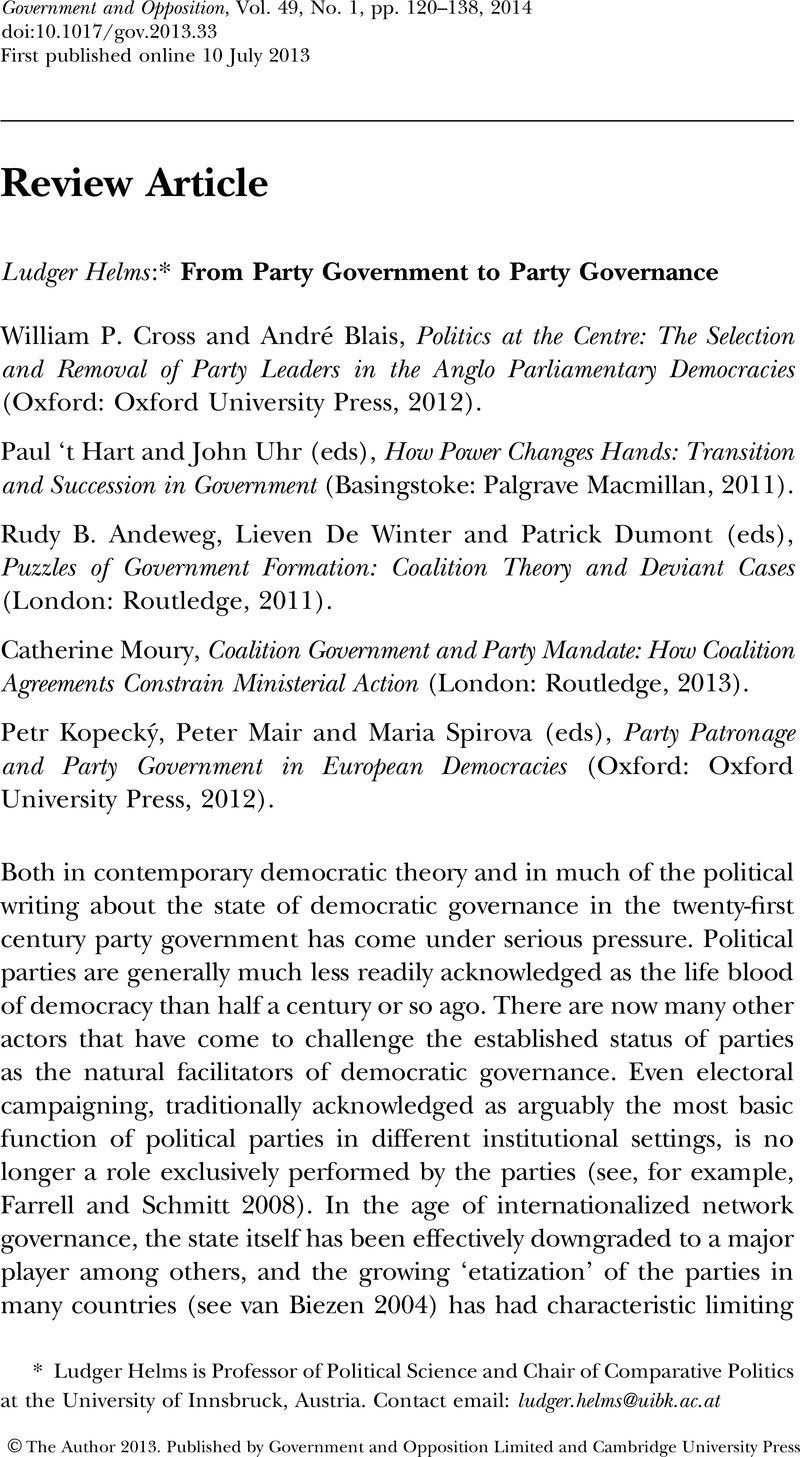Crossref Citations
This article has been cited by the following publications. This list is generated based on data provided by Crossref.
Bogaards, Matthijs
2017.
Lessons from Brexit and Trump: populism is what happens when political parties lose control.
Zeitschrift für Vergleichende Politikwissenschaft,
Vol. 11,
Issue. 4,
p.
513.
Cross, William
2018.
Understanding Power-Sharing within Political Parties: Stratarchy as Mutual Interdependence between the Party in the Centre and the Party on the Ground.
Government and Opposition,
Vol. 53,
Issue. 2,
p.
205.



